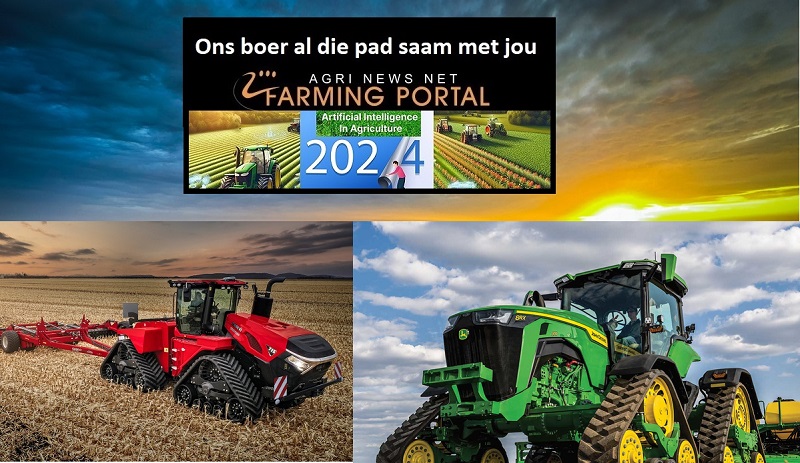The concept of smart farming involving the use of advanced technologies such as AI, IoT, and big data analytics is defining the future of agricultural practices and is currently generating a tidal wave of opportunities for agritech startups. These startups are well placed to meet the growing demand for food around the world while at the same time offering efficient, sustainable farming solutions.
Here are six emerging trends and the opportunities that they present for agritech startups:
1. Precision Agriculture: Data-Driven Farming for Maximum Efficiency
Precision agriculture is an important pillar of smart farming, which includes the use of data in enhancing farming methods. Precision agriculture helps to make real-time assessments of factors like soil, water, and crop health. The use of satellite imaging, GPS, and sensory technology enables the farmer to apply water, fertilizers, and pesticides appropriately, increasing production and minimizing wastage.
For agritech startups, this presents the opportunity to create systems that collect data and present this to farmers so they can make better decisions. Such sensors, drones, or software solutions can be created by startups, and this real-time data can help farmers to work most efficiently, with the lowest operational expenses and with reduced emission of pollutants to the environment. The possibility of customization of these solutions depends on the type of crops and geographic location, which only adds value to these solutions.
2. AI-Driven Crop Management: Enhancing Productivity and Decision-Making
Artificial intelligence (AI) is rapidly transforming crop management, where it performs tasks which were previously handled manually and also carries out risk assessment. Automated crop management employs big data analytics by relying on machine learning (ML) algorithms to predict climate changes, disease risks, and the optimum time for harvesting. This makes it possible for the farmers to prevent anything that might hinder the growth of the crop and also improve the yield of the crop.
Agritech startups can leverage artificial intelligence to create apps that will assist farmers in managing the growth of crops, pinpointing the onset of diseases, and assisting in informed decision-making. Their products might also ensure optimal use of materials and manpower, reduce costs on labor, and boost the management of the supply chain.
If the startups manage to tackle such essential problems as crop losses and resource wastage, they will have a great potential for enhancing food safety and environmentally friendly technologies.
3. IoT Integration: Connected Devices for Smarter Farms
The arrival of the Internet of Things (IoT) in the agtech space is making everything more connected by using devices such as smart devices, automatic irrigation machines, and drones. These IoT devices help farmers monitor and manage their farms even from far away by providing real-time information about the soil, weather, and the performance of the equipment on the farm.
When it comes to agritech startups, IoT offers themselves a grand avenue to grow solutions that address the multiplicities of the farming value chain. Startups can develop software that optimizes irrigation based on forecasts or work on drones, which will help to control the state of huge fields and identify if crops are stressed.
4. Robotics and Automation: Redefining Labor and Productivity
Robotics and automation convergence in agriculture is mitigating the growing shortage of labor force and increasing efficiency. In terms of reliability, autonomous machines do relieve people of responsibilities in activities such as planting, weeding, and harvesting among other responsibilities.
From an innovation perspective, technologists in startups can identify the low-hanging fruit of using robots in the agricultural industry regarding repetitive duties that require human intervention in undertaking the task.
Automation technology offers scalability, enabling farmers to manage larger areas of land without compromising productivity. With advancements in AI and machine learning, these robots can adapt to different environments and crops, making them a versatile solution for diverse farming needs.
5. Blockchain for Traceability and Transparency
A trend that recent studies have identified is the application of that technology in the food supply chain which primarily guarantees the traceability of products. With the use of blockchain technology, all the information relating to farming, such as what seeds were planted, how the farm was cared for, and how the crops were transported, is stored in a secure, tamper-proof mode. This kind of transparency is not only appealing to the consumer who wishes to trace the sources of the delicacy but also helps the growers in defending their earnings and minimizing swindles.
Such agritech startups can easily leverage blockchain to create ecosystems that will guarantee proper quality assurance at every level of food production to combat and prevent any violations of the quality standards or environmental laws. It will increase the level of transparency, and assist in trusting farmers in terms of their ability to meet consumer needs and be competitive in the market.
6. Sustainability and Climate Resilience: Future-Ready Farming
However, because climate change is an ongoing process that impacts agriculture in a negative way, climate-friendly and sustainable farming practices are required more than ever before. There are increased uses of practices like regenerative agriculture farming and efficient water use, while innovations such as artificial intelligence and the internet of things are making farming more efficient.
The major opportunity that presents itself to agritech startups is to design solutions that ensure farmers make minimal negative impacts on the environment and are sustainable. This ranges from developing tools that help in the conservation of water, reducing the use of chemicals, and generally improving the ground. Climate-smart agriculture is one of the key areas that start-up companies will be able to address in a short time, hence becoming profitable ventures, especially due to the increasing demand for environmentally friendly farming practices.
Seizing the Opportunities: The Role of Agritech Startups
With the advent of artificial intelligence, IoT, robotics, and data analytics in the agricultural industry, there is a conducive environment for agritech startups to thrive. As those startups come up with solutions that address some of these major challenges in farming, such as food production, sustainability, and resources, they will also shape the future of farming while occupying a large niche in the global agritech market.
It will be startups that are innovative, scalable, and sustainable that will drive the change in traditional farming practices. Working hand in hand with farmers, scientists, and governments, agritech startups have the potential to widely implement smart farming tools and establish a better, more productive farming industry.
To summarize the above thoughts, the future of agriculture will belong to people creating better technological solutions for farming and optimizing farming for the benefit of both people and the environment. This is the moment for agritech startups to come up with solutions and capture the market. Agricultural startups have a unique opportunity to look for a solution for current problems and shape the future of agriculture with a global trend for food security and new sustainable agricultural practices.















